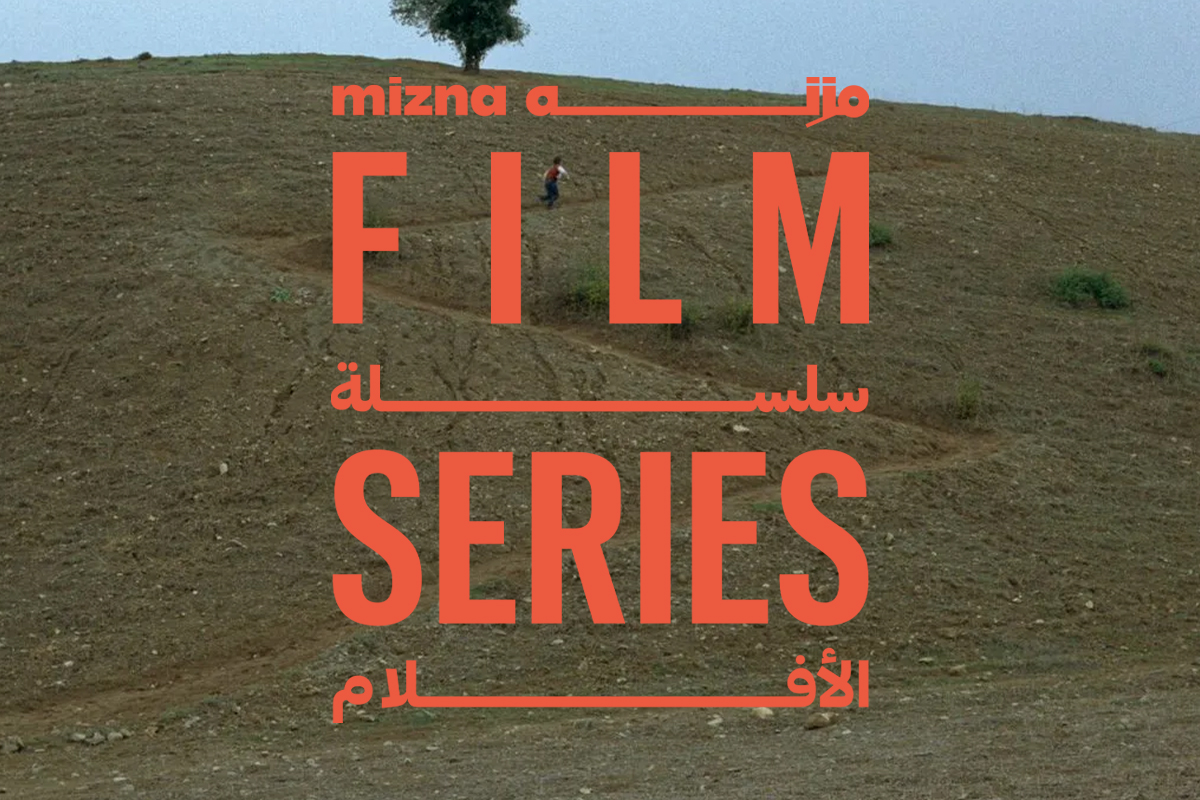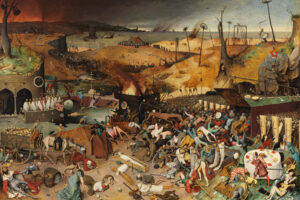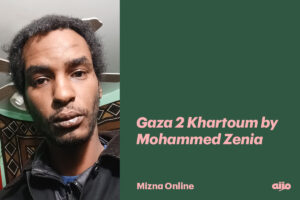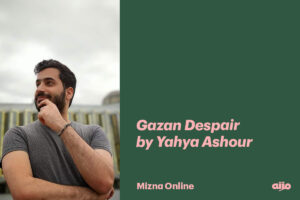
December 17, 2024
Mizna Film Series 2025: Iranian Classics
The 2025 Mizna Film Series presents some of our favorite archival classics from the past 60 years of Iran’s cinema history. Beginning with a beloved film from Abbas Kiarostami and ending with a tribute to Dariush Mehrjui, we’re proud to present these films in collaboration with the Twin Cities Iranian Culture Collective, Archives on Screen, and the Trylon Cinema.
Learn more about the Mizna Film Series here.
Tickets
In-person Trylon tickets: $10
Virtual Tickets: Pay what you can, $5 suggested donation
UPCOMING

JAN 19: CELLULOID UNDERGROUND BY EHSAN KHOSHBAKHT
(2023, DCP, 80 m, English and Farsi with English subtitles) dir Ehsan Khoshbakht
After the Iranian Revolution, a movie collector in Tehran hid thousands of films
to prevent their destruction by the new Islamic regime. Despite arrest and
torture, he refused to give up his secret. His story of resistance and obsession is
told by the boy who became his partner in crime, recalled years later from exile
in London.
This screening is presented in collaboration with the Iranian Film Festival at the Main Cinema.
Watch in-person only on January 19, 2025, 1pm at the Main Cinema.

JAN 22: WHERE IS THE FRIEND’S HOUSE? BY ABBAS KIAROSTAMI
(1987, DCP, 83m, Farsi with English subtitles) dir Abbas Kiarostami
The first film in Abbas Kiarostami’s sublime, interlacing trilogy of films set in the northern Iranian village of Koker takes a premise of fable-like simplicity—a boy searches for the home of his classmate whose school notebook he has accidentally taken—and transforms it into a miraculous, child’s-eye adventure of the everyday. As our young hero zigzags determinedly across two towns aided (and sometimes misdirected) by those he encounters, his quest becomes both a revealing portrait of Iranian society in all its richness and complexity and a touching parable about the meaning of personal responsibility. Shot through with all the wonder, beauty, tension, and mystery one day can contain, Where Is the Friend’s House? established Kiarostami’s reputation as one of cinema’s most sensitive and profound humanists.
Watch in-person only on January 22, 2025 at 7pm at Trylon Cinema

FEB 16 AT IL CINEMA RITROVATO ON TOUR
THE SEALED SOIL + MARJAN AT IL CINEMA RITROVATO ON TOUR

THE SEALED SOIL
(1977, 90 m, Farsi with English subtitles) dir Marva Nabil
Writer-director Marva Nabili made history in 1977 with The Sealed Soil, the first feature film directed by an Iranian woman to be preserved in its entirety to this day. In pre-revolutionary Iran, a young woman refuses to follow the path imposed on her after reaching marriageable age. Meanwhile, we observe the day-to-day life of her family and an entire village forced to move by government order. The young protagonist’s persistent need for independence causes her family to question whether this is a case of demonic possession, and they turn to an exorcist to free her from these undue thoughts and desires. The Sealed Soil is a powerful story of female empowerment, proving that revolutions can also be internal and silent.

MARJAN
(1956, Farsi with English subtitles) dir Marva Nabil
Marjan (1956) is the first Persian feature film directed and produced by a woman in Iran. Filmmaker Shahla Riahi (Ghodrat-ol-Zaman Vafadoost) plays the lead role of Marjan, a Roma woman whose doomed romance with a young school teacher has multiple endings, according to key sources. Shot on 35mm black-and-white film with a runtime of 105 minutes, Marjan was the inaugural production of Arya Film Studio, founded by Riahi herself in 1956. Unfortunately, only two reels of the film can be viewed today, preserved by the Iranian film collector Ahmad Jorghanian, while further surviving reels in the Iranian National Film Center remain completely inaccessible. Film scholar Farzaneh Ebrahimzadeh Holasu will present the surviving fragments in person.
This screening is presented in collaboration with the Il Cinema Ritrovato on Tour at the Main Cinema.
Watch in-person only on February 16, 2025 at 1pm.

APRIL 23: BRICK AND MIRROR + THE HOUSE IS BLACK

BRICK AND MIRROR
(1965, DCP, 131m, Farsi with English subtitles) dir Ebrahim Golestan
With this landmark debut feature, director Ebrahim Golestan delivers a jolt of modernism to pre-revolution Iranian cinema, laying the groundwork for the first new wave. When a mysterious woman (feminist literary icon Forugh Farrokhzād, and director of The House Is Black) abandons a baby in the backseat of his cab one night, Tehran taxi driver Hashem (Zakaria Hashemi) begins a journey through the city’s unfeeling bureaucracy as he attempts to find a home for the infant—a situation that soon puts him in conflict with his nurturing girlfriend Taji (Taji Ahmadi). Melding the influences of Persian poetry, 1960s European art cinema, and Wellesian expressionism, Brick and Mirror offers a portrait of a crumbling relationship that reflects on many contemporary social and political dynamics.

THE HOUSE IS BLACK
(1964, DCP, 22m, Farsi with English subtitles) dir Forugh Farrokhzād
The only film directed by trailblazing feminist Iranian poet Forough Farrokhzād finds unexpected grace where few would think to look: a leper colony where inhabitants live, worship, learn, play, and celebrate in a self-contained community cut off from the rest of the world. Through ruminative voiceover narration drawn from the Old Testament, the Qur’an, and the filmmaker’s own poetry as well as unflinching images that refuse to look away from physical difference, Farrokhzād creates a profoundly empathetic portrait of those cast off by society—an indelible face-to-face encounter with the humanity behind the disease. A key forerunner of the Iranian New Wave, The House Is Black is a triumph of transcendent lyricism from a visionary artist whose influence is only beginning to be fully appreciated.
Watch IN-PERSON ONLY April 23, 2024 at 7pm at Trylon Cinema

JULY 23: GILANEH
On New Year’s Eve during the Iran-Iraq war, while Tehran endures relentless missile attacks, a middle-aged villager named Gilaneh must help her children navigate the war’s impacts. Fifteen years later, on another New Year’s Eve, the echoes of war linger in each of their lives. Directed by one of Iran’s most prolific female filmmakers, Gilaneh offers an intimate, emotionally gripping portrait of a mother whose life is shattered by war’s relentless toll, a reality that the film links to two critical, historical moments: the Iran-Iraq War in the 1980s, and the US invasion of Iraq in 2003. Gilaneh reflects on the enduring human cost of war, transcending time and politics, and Fatemeh Motamed Arya’s powerful performance brings humor, resilience, and profound humanity to the screen.
Programmed by Mizna friend and frequent collaborator, Professor Sima Shakhsari, who will introduce the film screening.
Watch IN-PERSON ONLY July 23, 2025 at 7pm Trylon Cinema












